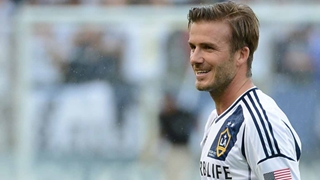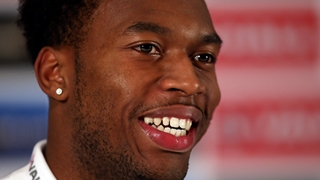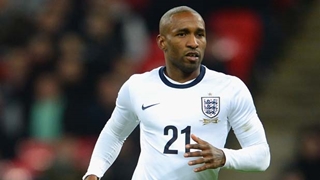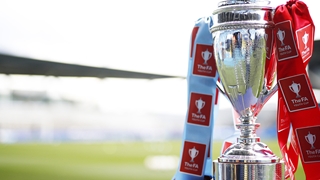
Jermain Defoe, the England striker with 55 caps, will now play for Toronto in the MLS and follow in the footsteps of some other top English names – and some lesser known ones – who have taken their talent to North America. Here are a few of them...
David Beckham
LA Galaxy’s acquisition of England’s most-capped outfield player in 2007 brought them financial dividends even before he joined up with the team.
The club secured a new five-year shirt sponsorship deal said to be worth US$20m (£12m) and there were 11,000 new season ticket holders.
He made his Galaxy debut as a substitute in a friendly against Chelsea and went on to inspire them to win three MLS Western Conference regular-season titles, three play-offs, two MLS Cups and two MLS Supporters’ Shields.
In his five years as a Galaxy player he had two loan spells with AC Milan.
Bobby Moore
‘Mooro’, of course, is one of England’s most iconic players.
In consecutive years he won The FA Cup and European Cup Winners’ Cup with West Ham United and the World Cup with England.
He played his last professional game in England for Fulham in 1977 and then turned out for two teams in the old North American Soccer League.
He had 24 games with San Antonio Thunder in 1976 and seven with Seattle Sounders in ’78.
There was also a final appearance on the international field for ‘Team USA’ in games against Italy, Brazil and… England. This was in the USA Bicentennial Cup Tournament.
Rodney Marsh
The maverick, capped nine times for England and a Queens Park Rangers legend who scored in their League Cup Final win in 1967, signed for Tampa Bay Rowdies in Florida in 1976.
He had three years there as a player, leading the club to two Soccer Bowl Finals and being an NASL All-Star first-teamer twice.
For some of that time he also played for Fulham with George Best.
‘Hot Rod’ returned to the Rowdies as head coach in 1983 after spells in charge at New York United and Carolina Lightnin’ and was later the club’s chief executive officer.
Alan Ball
Ball was a World Cup-winner with England who finished with 72 caps.
He also won a League title with Everton and appeared in FA Cup Finals for both Everton and Arsenal. He joined Philadelphia Fury as a player on loan from Southampton in 1978 and quickly became player-coach.
One season later, when he was no longer coaching, he moved to Vancouver Whitecaps and made an instant impact, helping them to the NASL Soccer Bowl title.
He walked away with the 1979 Play-Off MVP award, scoring seven goals in nine games.
Returning to Britain in 1980, he became Blackpool’s player-manager.
Peter Beardsley
Beardsley won 59 England caps and played in the World Cups of 1986 and 1990.
Before making it with England, and at club level with Newcastle and Liverpool, he had two periods with Vancouver Whitecaps.
He had been released as a teenager by Newcastle and began his professional career with Carlisle, helping them to win promotion to Division Two in 1982.
He was transferred to Vancouver but Manchester United signed him after he had impressed in a friendly in Canada.
He made only one first-team appearance before returning to Vancouver on a free transfer.
After the summer he was back in Britain to play for Newcastle.
Stewart Jump
Manchester-born Jump was a full-back who played Division One football for Stoke City before switching to Crystal Palace five games into the 1973-74 season.
He was one of three Palace players – Paul Hammond and Mark Lindsay were the others – to play for Tampa Bay Rowdies in the summer of 1975.
The Rowdies, coached by former Charlton favourite Eddie Firmani, headed the NASL’s Eastern Division and went on to beat Portland Timbers 2-0 to win the Soccer Bowl.
Jump had two more summers there and then his contract at Palace was purchased by Houston Hurricane.









